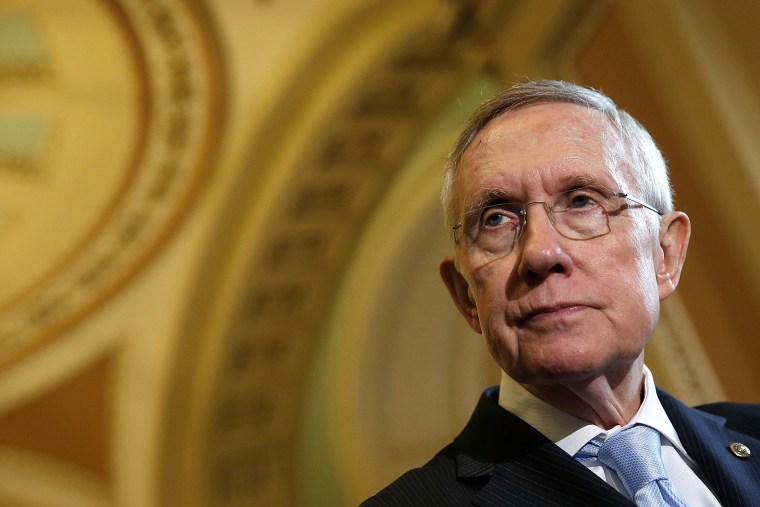House and Senate leaders have reached a bipartisan deal to avert a government shutdown, agreeing to fund most operations through September of next year.
Lawmakers had been struggling to finalize a budget agreement this week, which had been held up over policy differences between House Republicans and Senate Democrats.
“After months of thorough, business-like, sometimes tough but always civil negotiations, we have reached a responsible, bipartisan and bicameral agreement on funding for government operations for 2015,” said House Appropriations Committee Chairman Hal Rogers and Senate Appropriations Chairwoman Barbara Mikulski in a joint statement Tuesday on the $1.1 trillion agreement.
RELATED: Shutdown fight threatens GOP rebrand before it has even begun
Republicans won some significant victories in the deal: While most domestic spending remains flat, the spending bill cuts funding for the IRS and Environmental Protection Agency, and it guts a significant provision in the Dodd-Frank Act.
The agreement scales back a rule requiring Wall Street to take trading of complex derivatives known as swaps out of government-insured banks. Implementation of the so-called “swaps push-out” has been delayed for years, but the deadline is finally approaching, which spurred a furious bout of last-minute lobbying in recent weeks on Capitol Hill.
Democrats did manage to increase funding for major financial regulators — the Securities and Exchange Commission, and the Commodities Futures Trading Commission, both of which have been strapped for resources to enforce Dodd-Frank.
The House and Senate are likely to vote on Thursday, although a senior House Republican aide told msnbc that Congress may pass a bill funding the government for a short period in order to give lawmakers enough time to clear various procedural hurdles.
Under a plan pushed by Speaker John Boehner, Congress will pass two bills, one to fund the vast majority of government through the end of the fiscal year and one that would fund just the Department of Homeland Security through the end of February.
RELATED: Congress races to reach spending deal before shutdown deadline
The two-part track is designed to give Republicans the option of adding language to the next round of Homeland Security funding that would block President Obama’s executive action on immigration, which would shield as many as 5 million undocumented immigrants from deportation. The White House has issued a veto threat against legislation targeting its immigration move and tying it to a spending bill would likely precipitate a partial government shutdown standoff. For now, however, the immigration issue is off the table, paving the way for the newly announced deal.
Earlier Tuesday, Senate Majority Harry Reid criticized Republicans for trying to attach policy riders to the legislation. “For the extremists within the Republican Party, that has been so strong within their party, there’s always a reason to try to take a poke at the president,” Reid said, adding that Republicans are “really after doing something to weaken Dodd-Frank.
A group of Democratic senators, including Elizabeth Warren of Massachusetts and Sherrod Brown of Ohio, sent a letter on Monday urging leaders to stand strong against change to Dodd-Frank that made it into the spending deal.
But it’s unclear how much of a fight Democratic leadership will put up over riders like the swaps pushout provision, which has previously attracted some Democratic support. House Leader Nancy Pelosi said that her caucus needed to review the final language before determining its support for the bill, but added that she was “hopeful” about the legislation.
The bill also includes other policy compromises hammered out in the final hours. There’s a provision restricting the ability to apply the Clean Water Act to certain bodies of water in agriculture areas, but more far-reaching environmental restrictions were left out. It also blocks the District of Columbia’s local ballot initiative legalizing marijuana that voters approved in November, though it won’t affect a separate law decriminalizing the possession of small quantities of marijuana.
“I strongly oppose several policy riders included in this final agreement, but I am pleased Democrats were able to eliminate many of the most damaging provisions,” said Rep. Nita Lowey, ranking Democrat on the House Appropriations Committee.
